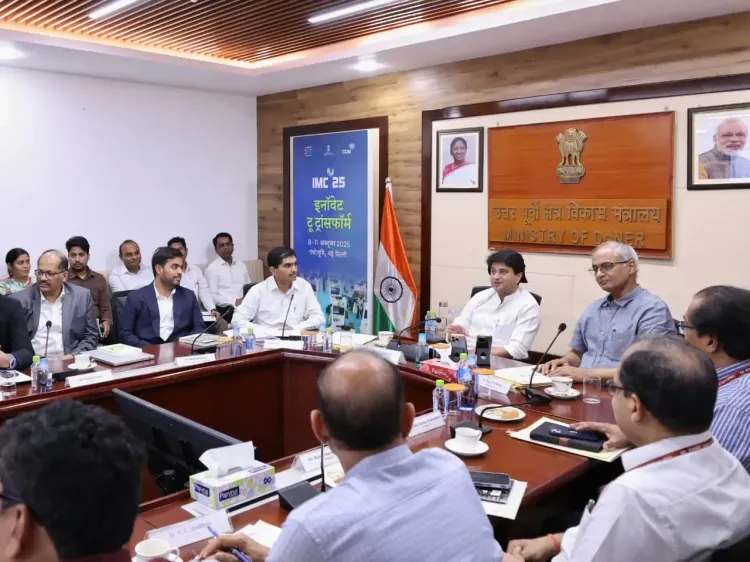Is the Government Really Committed to Bridging the Digital Divide and Enhancing Telecom Manufacturing?

Synopsis
Key Takeaways
- Government commitment to bridge the digital divide.
- Focus on local telecom manufacturing and innovation.
- Upcoming initiatives like IMC 2025 and TMZ.
- Collaboration between TSPs and OEMs with the DoT.
- Resolutions on cyber security and interoperability issues.
New Delhi, Sep 25 (NationPress) Union Communications Minister Jyotiraditya Scindia emphasized the government's dedication to closing the digital divide, promoting innovation, and enhancing local telecom manufacturing. In a recent discussion with telecom service providers (TSPs) and original equipment manufacturers (OEMs), the minister urged both parties to collaborate closely with the Department of Telecommunications (DoT) to ensure timely and actionable feedback.
He highlighted that future projects such as the India Mobile Congress (IMC) 2025, the Telecom Manufacturing Zone (TMZ) in Gwalior, and the Innovation Centre in Jabalpur are set to be crucial in positioning India as a global leader in telecom technology, services, and manufacturing.
During the meeting, the minister acknowledged that many of the outstanding concerns raised by TSPs have been addressed, particularly those relating to cyber security, spam control, and technology interoperability.
However, three significant issues—digital divide, spectrum authorization, and the business viability of fixed-line services—are still being evaluated, with stakeholders required to provide feedback on draft regulations by October 6, 2025.
Additionally, matters concerning telemarketer regulations, licensing fees, and electricity requirements are being assessed as part of the new Telecom Policy framework.
On the OEM side, the minister reported the resolution of issues related to indigenous manufacturing, testing, certification timelines, and business facilitation.
Nonetheless, four areas remain unresolved: achieving cost parity with global competitors, developing a full domestic manufacturing ecosystem for import substitution, fostering design-led manufacturing, and addressing challenges in single-source component procurement. Stakeholders are expected to respond by October 6.
The Stakeholders Advisory Committees (SACs) have been established by the Minister of Communications to gather essential insights from across the telecom sector.
These advisory bodies foster structured dialogue between the government, industry, and innovators, promoting inclusive and collaborative policy-making as stated by the ministry.









